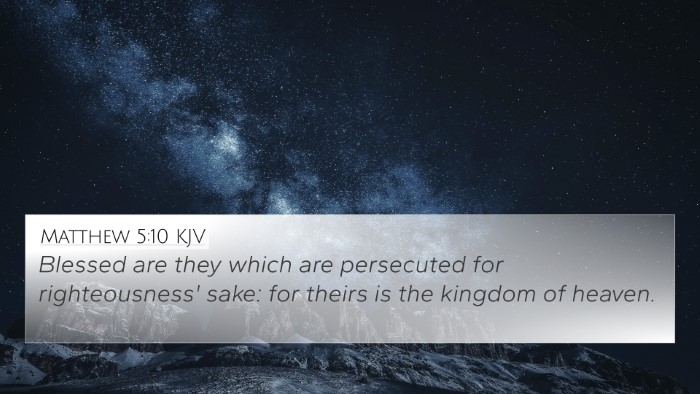Exploration of Matthew 22:6
Matthew 22:6 states: “And the remnant took his servants, and entreated them spitefully, and slew them.” This verse forms part of the Parable of the Wedding Feast, where Jesus illustrates the rejection of God's messengers.
Contextual Overview
This parable is a profound illustration of the Kingdom of Heaven, emphasizing the invitation extended to all and the consequences of rejection.
Commentary Insights
- Matthew Henry: Henry highlights the severity of the rejection faced by the servants (prophets) sent by the king (God). The act of treating them spitefully and killing them signifies the extreme hostility and rejection that God’s messengers often encounter.
- Albert Barnes: Barnes focuses on the implications of this rejection, noting that it parallels historical events where the Israelites rejected their prophets. The verse encapsulates the tragic irony that those invited to partake of God’s blessings often respond with contempt.
- Adam Clarke: Clarke elaborates on the symbolism of the wedding feast, asserting that the servants represent prophetic voices throughout history. He cautions against underestimating the seriousness of rejecting divine invitations.
Thematic Conclusions
This verse serves as a pivotal reminder of the connection between rejection of God's message and the imminent judgment. It vividly illustrates the human condition of dismissing divine calls.
Cross-References
For a deeper understanding, here are several cross-references that elucidate the themes presented in Matthew 22:6:
- Luke 10:16: Emphasizes the response to the messengers of God.
- John 15:20: Highlights the inevitability of persecution for those who follow Christ.
- Matthew 23:37: Reflects God's sorrow over Jerusalem’s rejection of prophets.
- Acts 7:52: Stephen's speech condemns the Jewish leaders for rejecting the prophets.
- 2 Chronicles 36:16: Discusses the fate of those who scoff at the messengers of God.
- Hebrews 11:36-38: Explains the suffering endured by prophets and God's faithful servants.
- 1 Thessalonians 2:15: Declares the persecution faced by the apostles at the hands of their own people.
Tools for Cross-Referencing
Utilizing resources for cross-referencing can significantly enhance one’s understanding of scripture. Here are some valuable tools:
- Bible Concordance: Essential for finding specific words or phrases throughout the Bible.
- Bible Cross-Reference Guide: Helps in identifying thematic connections between various verses.
- Cross-Reference Bible Study: Encourages in-depth exploration of related scriptures.
- Bible Chain References: A system for linking related verses together.
Applications of Cross-Referencing
To enhance study and sermon preparation, understanding cross-references can prove beneficial. Here are some methods to incorporate them into your study:
- Identify connections between Old and New Testament: This reveals continuity in God's message.
- Comparative study of Pauline Epistles: Notable for elaborating on themes of faith, grace, and redemption.
- Detail cross-references between Gospels: Offers a comprehensive view of Jesus' life and teachings.
Conclusion
Matthew 22:6 serves not only as a historical account within a parable but also as a contemporary insight into the relationship between God and humankind. Understanding this verse and its accompanying commentaries and cross-references allows us to reflect on the importance of heeding divine invitations and recognizing the consequences of rejection.














